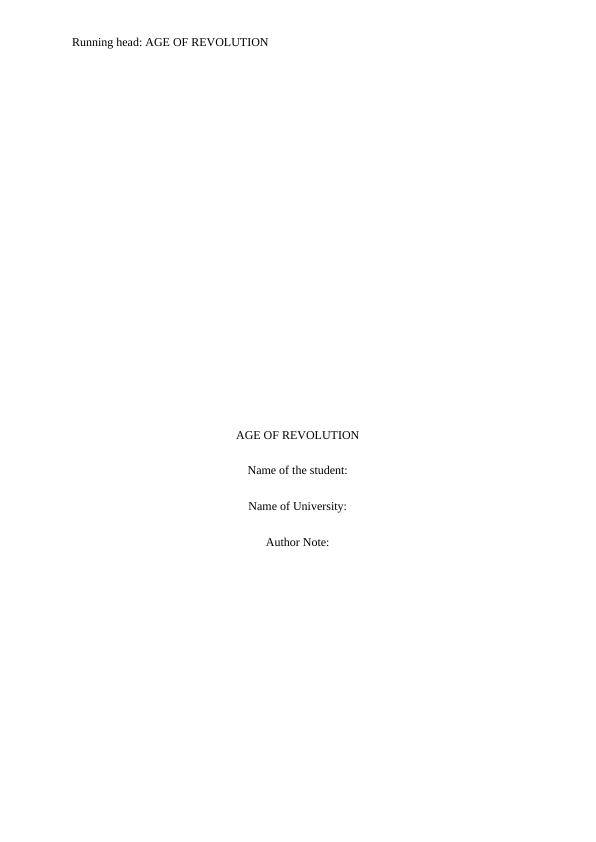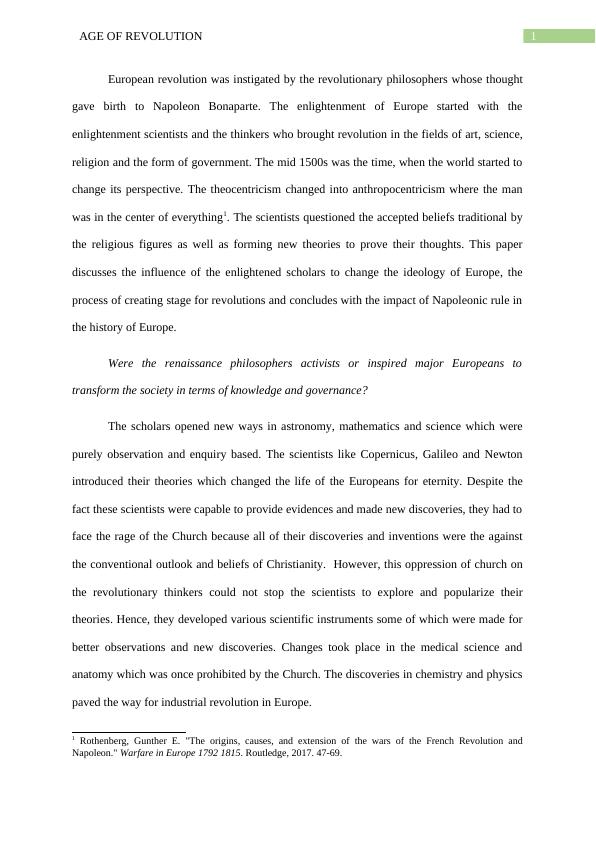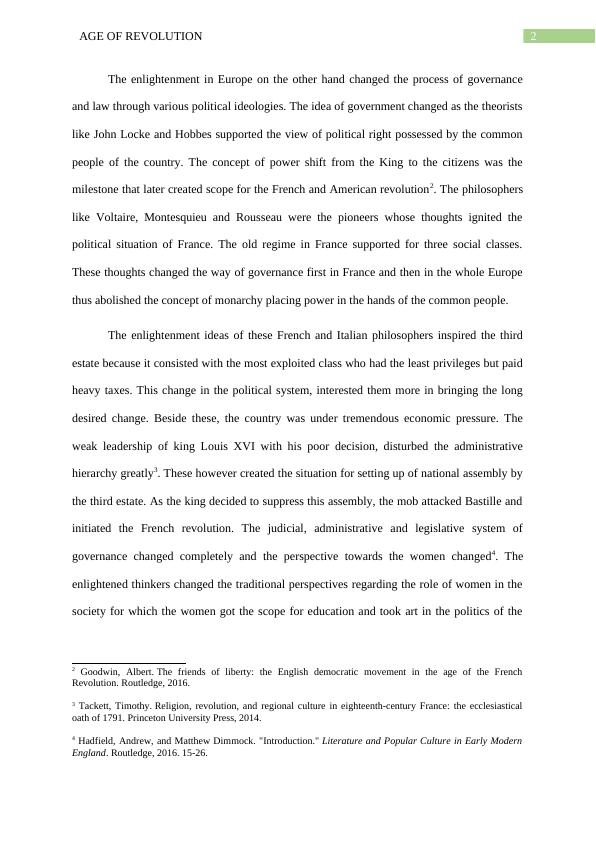Age of Revolution: Impact of Enlightenment and Napoleonic Rule in Europe
Introduction and What is History lecture and readings
7 Pages1951 Words118 Views
Added on 2023-06-14
About This Document
This paper discusses the influence of the enlightened scholars to change the ideology of Europe, the process of creating stage for revolutions and concludes with the impact of Napoleonic rule in the history of Europe.
Age of Revolution: Impact of Enlightenment and Napoleonic Rule in Europe
Introduction and What is History lecture and readings
Added on 2023-06-14
ShareRelated Documents
End of preview
Want to access all the pages? Upload your documents or become a member.
The Scientific Revolution and the Enlightenment PDF
|5
|880
|139
Impact of Scientific Revolution on Ancient Beliefs and Western Society
|4
|737
|155
(solved)Assignment : Atlantic Revolutions
|6
|1497
|343
19 Century Europe: Revolution, Liberalism, Economic Development, and Social Changes
|5
|894
|143
The Rise of Modern Science and Enlightenment Philosophers
|6
|1301
|373
French Revolution and Liberalism Essay 2022
|4
|1179
|56



